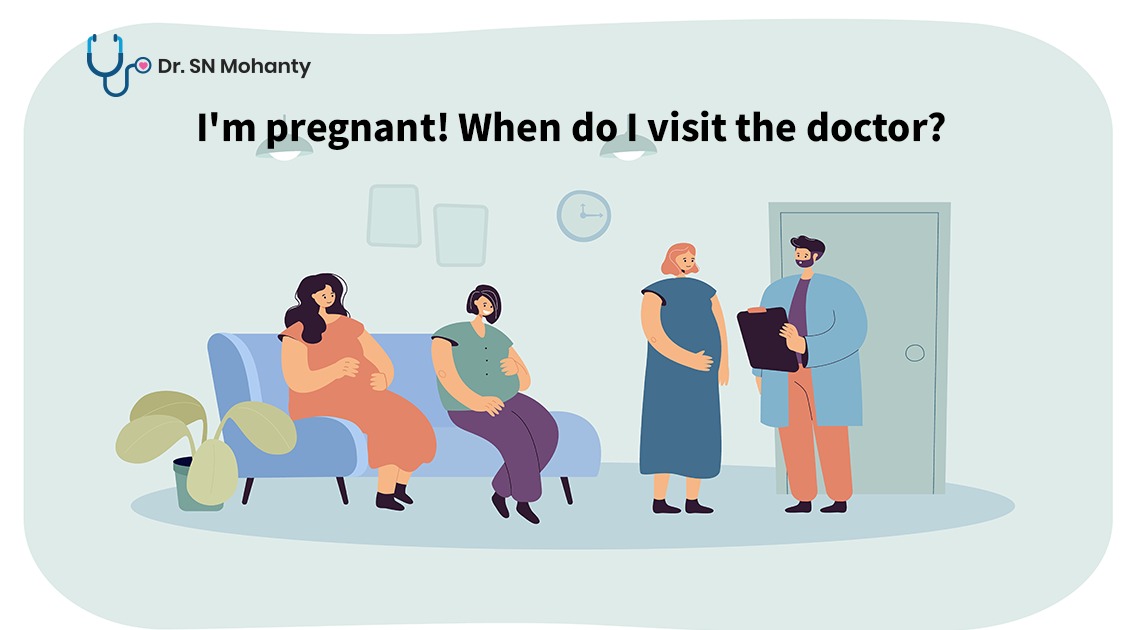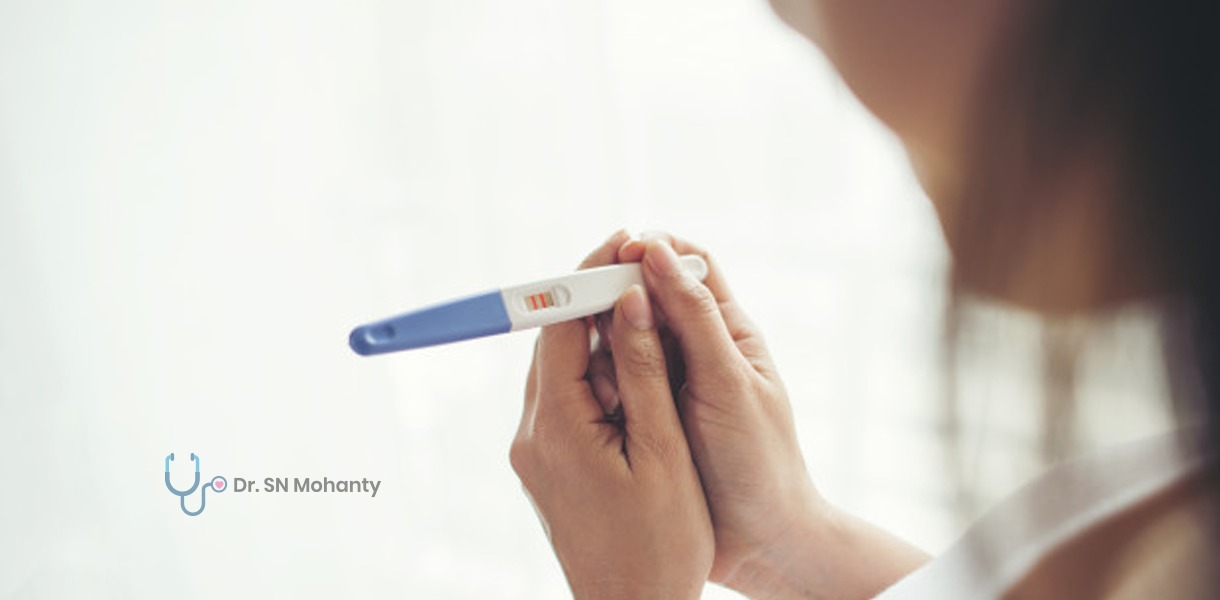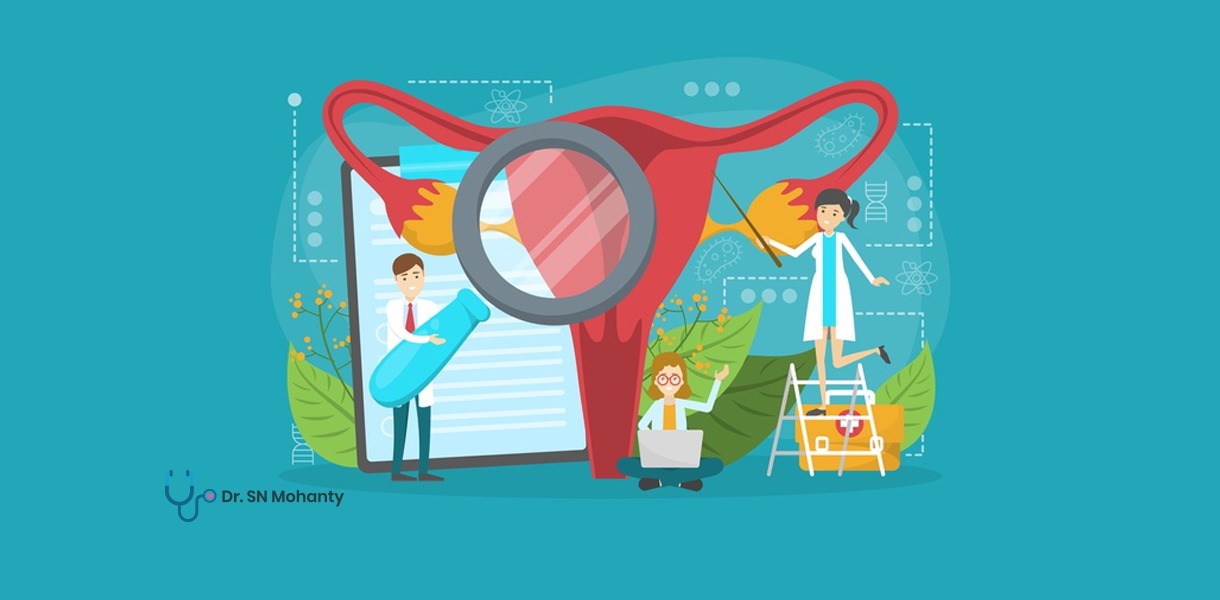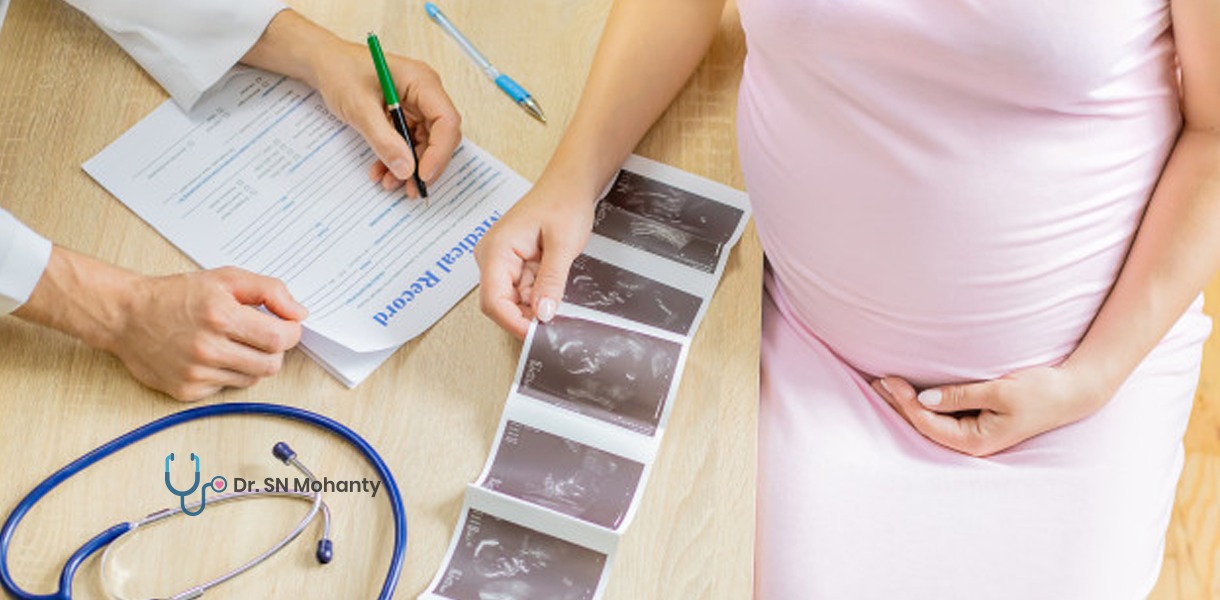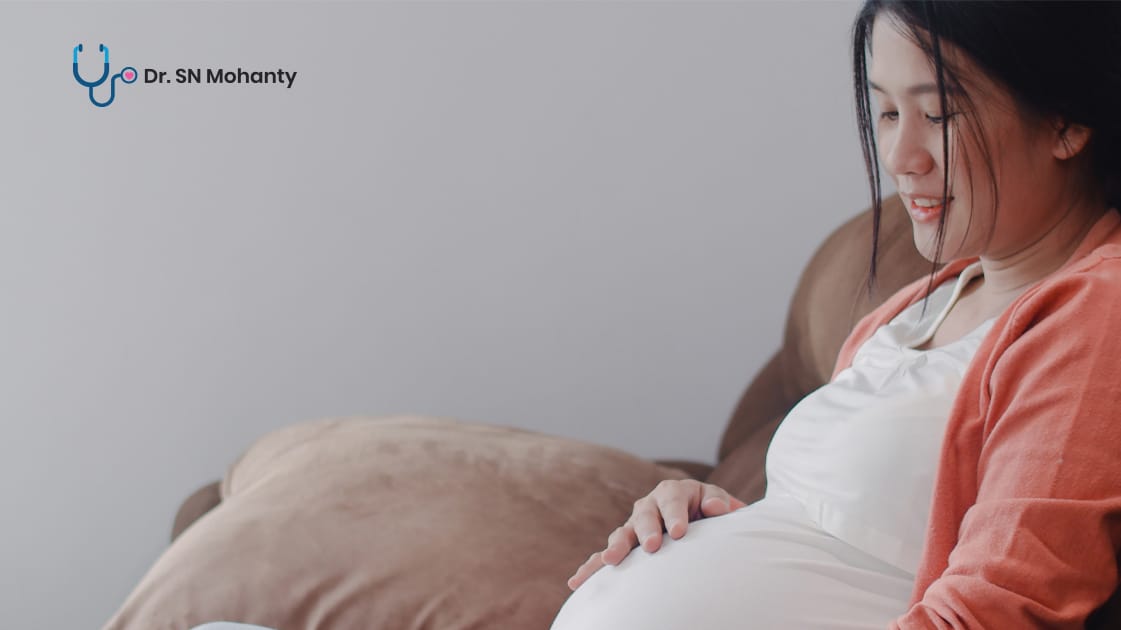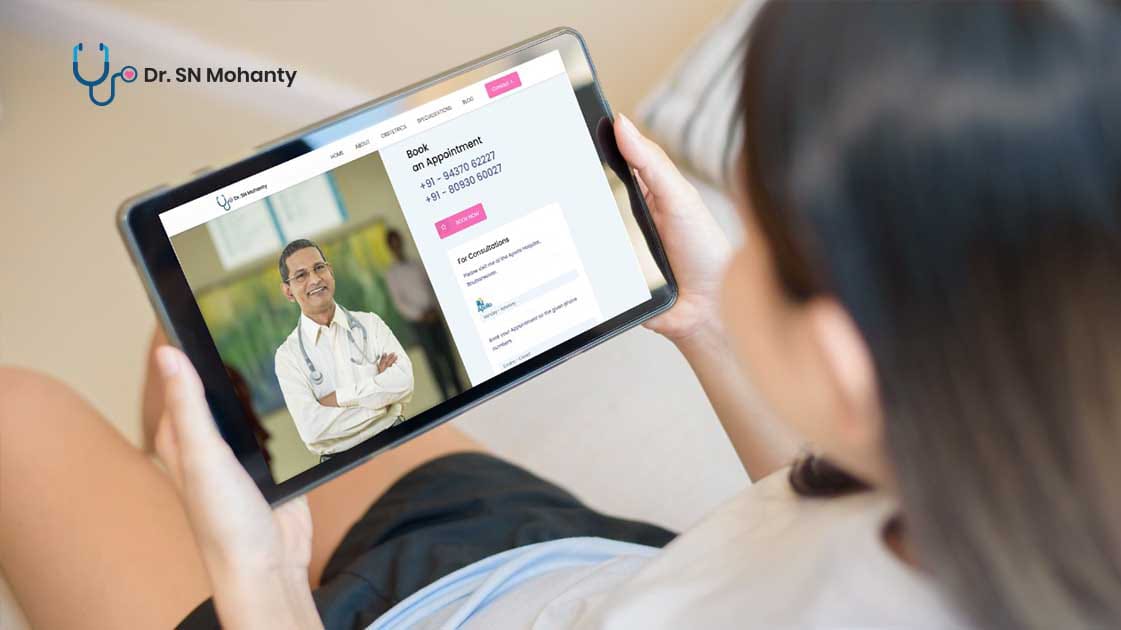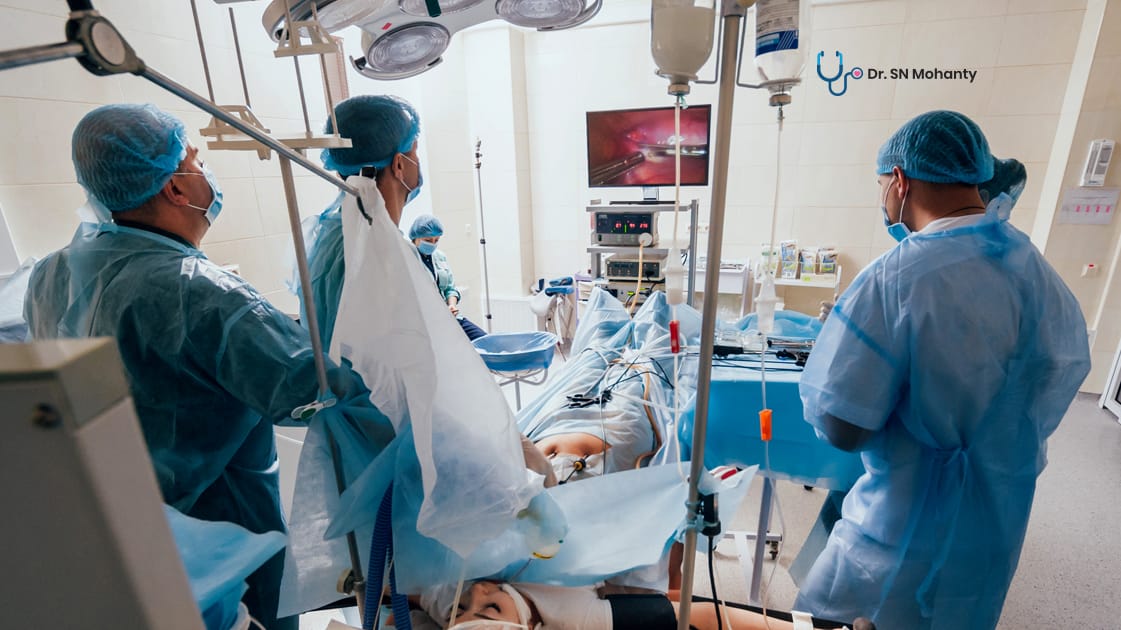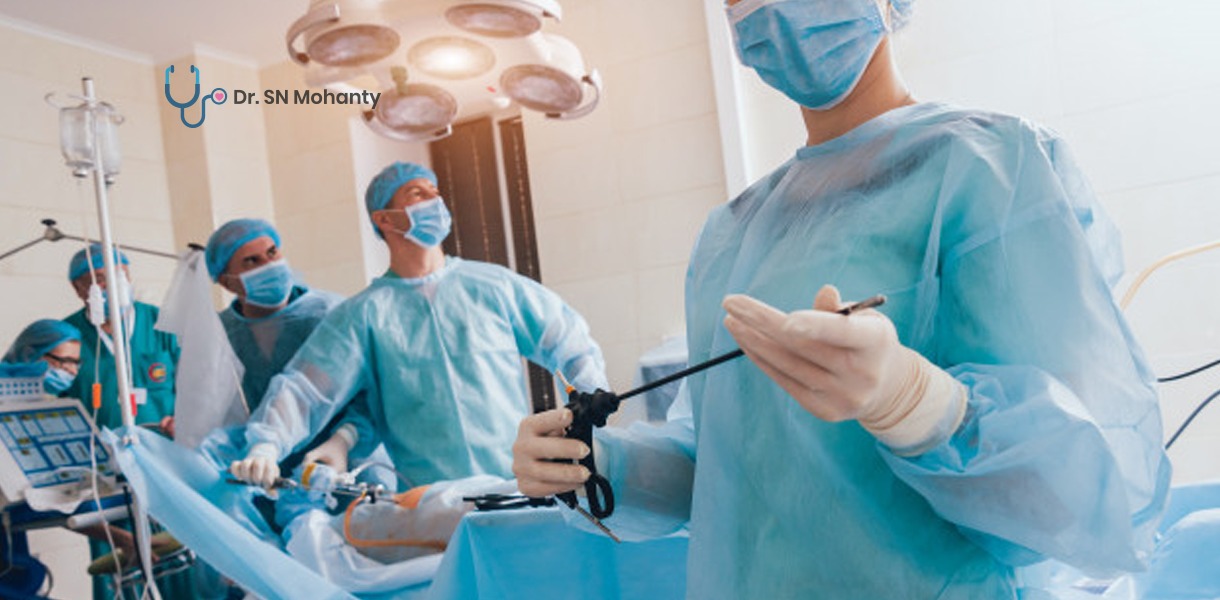
Women's reproductive system is structured beautifully with various organs. Various organs help women to undergo reproduction and give birth to a new life. It is a very interesting and emotional factor in a woman's life. Reproductive organs such as ovaries, uterus, and other organs, are prone to various infections which lead to some of the serious diseases. If the symptoms go severe, may cause dangerous and life-taking diseases such as cancer and tumors.
This is very similar to the ovarian cysts. In many cases, cysts are non-cancerous and do not cause life in danger. But in some cases, if they are largely developed, they cause various diseases.
Dr. SN Mohanty is the best gynecologist in Bhubaneswar with experience of about 28 plus years has expertise in resolving the issues related to ovaries and ovaries cysts. The team has a dedicated focus on laparoscopic ovarian cystectomy that relieves women from the vital issues related to the ovarian cysts.
The ovarian cysts
The ovarian cysts are the fluid-filled sacs or pockets that grow in or around the ovaries. Ovaries are the two almond-sized and shaped organs of the woman's reproductive system that are responsible for releasing the eggs within 28 days of women's monthly cycle. The size of the ovarian cysts can vary from less than one centimeter to a size greater than 10 centimeters.
Most of the time the ovarian cysts are not cancerous but in some severe cases, they are dangerous and cancerous. The ovarian cysts which are benign can be treated with some of the minor surgeries whereas the ones which are dangerous and have major symptoms need to be treated with surgery. Most of the time they are treated with a surgical procedure called laparoscopic ovarian cystectomy.
Laparoscopic ovarian cystectomy
It is one of the most effective minimally access surgery that only causes few incisions in your abdomen. It is the surgical procedure that removes the ovarian cysts from your ovary. The main aim of recommending the laparoscopic ovarian cystectomy is to have minimal blood loss and to preserve the ovarian tissue.
Conditions to undergo laparoscopic ovarian cystectomy
A cyst on the ovary can be diagnosed with the help of a pelvic examination. Various such tests help the doctor to determine whether you have a cyst developed around your ovaries or not. Also, some of the tests help the doctor to determine its size.
Depending on the size of the cysts on your ovary and the following symptoms doctor will recommend the laparoscopic ovarian cystectomy.
• Mild to severe pain in your lower abdominal area
• Menstrual irregularities
• Nausea and vomiting
• Feeling of bloating
• Painful periods or change in the period pattern
• A significant change in appetite
• Constipation and many other symptoms
Laparoscopic ovarian cystectomy procedure
Before the surgery begins, the surgeon will give you anesthesia to sleep. The surgeon will insert the laparoscope; a small and thin camera with a small incision, mostly at the right of the navel. He will make an additional incision in your abdomen to carry surgery. He will fill your abdomen with gas or air to create space between the organs and he can have a clear view of your internal reproductive organs. Surgical instruments are also inserted to remove the cyst.
Risk of laparoscopic ovarian cystectomy procedure
• Bleeding during surgery, which may require a blood transfusion
• Infection of bladder or surgical site
• Surrounding organs
• The possible need for removal of ovary
•
Preparation for surgery
• You will be advised not to eat or drink (even water) after midnight before the surgery
• Anesthesia will be given to you. Hence, you will be advised to take someone with you while going to the doctor for surgery
• Make sure that you arrive at least two hours before the start of the surgery so that the necessary test can be done
• Make sure that you ask all the questions in your mind before the surgery only so that there remains no confusion after the surgery.
Recovery after the surgery
• You will be given anesthesia before the surgery. Hence, once the power of anesthesia is down, you may feel your abdomen and bladder bit sore. Your shoulder or back may also hurt after the anesthesia effect as it is filled with the gas during surgery. But, you need not worry, as you will be given the necessary medications to get relieved from it.
• One or two incisions are made in your abdomen during the surgery. Hence, incisions might be closed with stitches or skin adhesives. They may be covered with bandages. You can remove them after 24 hours of surgery. Make sure that you follow the dressing instructions given by the surgeon properly to avoid further skin infections. You will be given antibacterial medications that will help you to recover soon after the surgery.
• You may feel tired than usual after the surgery for one week. You need not worry. Make sure that you don't get bedridden due to this. It is okay if you take rest for one week after surgery, but make sure that after one week, you slowly make ways towards leading your routine life.
• It is important to take care of the incisions. Make sure that you do not go swimming or do not rub the incision when you go for a shower. Do not scratch your incisions even if you feel itching.
Call your doctor if
• You experience high fever more
• Severe nausea or abdominal pain
• Heavy bleeding
• Redness, Swelling, Pain, and infection from your incisions
Dr. SN Mohanty is experienced in treating severe cases related to ovarian issues. He also has expertise in handling cases related to ovarian cancer. With his safe and expert technical and gynecological knowledge you will get the best results with laparoscopic ovarian cystectomy.


